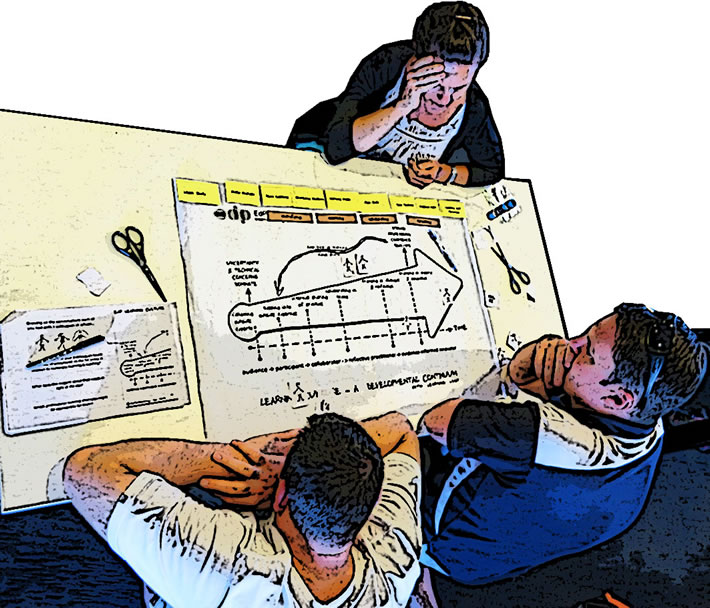Completed Projects

EdP Connected Learning in Community (CLiC) research
This multi-dimensional research project includes school leaders and teams conducting research in their own context which is connected to an overall study led by our partner organization Incept Labs and researcher Dr Chris Goldspink.
Science Scholarships Evaluation
The DET Science Graduate Scholarship (SGS) program seeks to attract and assist graduates with a science background to become qualified primary or secondary school teachers particularly in the hard sciences of physics and chemistry. We co-designed and conducted an impact evaluation of the program to find out:
- why scholarship recipients chose teaching
- the benefits of the scholarship
- the ease or difficulty of obtaining a teaching position
- the recipient’s perception of transitioning into the teaching profession
- the principal’s perception of the recipient’s experiences and capacities as a science teacher
The scope of the evaluation also included the identification of enablers and barriers to attracting high quality candidates at the Graduate Entry Teaching (GET) course level and attracting and retaining high quality science teachers in Victorian government schools and in particular, in rural areas. This report has been submitted to DET.
Review of contemporary research on Middle and Teacher Leaders commissioned by Bastow (2013)
School based Professional Learning Research (2006 – 2010)
Instructional Model Case Studies
EDP team researched and documented 10 different school approaches to use of an instructional model or teaching framework to strengthen teaching and learning across schools. There are available from the Department of Education and Training.
Effective Network and School Based Professional Learning
EdP team conducted a four year study for the Victorian Department of Education to investigate effective school and cluster based professional learning and the role implications for leaders at a system, school and team level. In particular we were asked to identify what transforms teacher professional learning and which practices were the most effective in making a difference student learning.
Evaluation of the Leading for Contemporary Learning in Catholic Schools program
This program was initiated to develop the pedagogic and leadership capacities of learning leaders to design and facilitate a rigorous and relevant curriculum for the 21st century. The project involved Primary and Secondary schools from each of the four CEOM regions and was underpinned by a three-way focus that promoted ‘Professional Inquiry + Connected Learning + Dialogue’. EdP was commissioned to co-design and collaboratively evaluate the initiative by generating and co-analysing data, guiding participating schools, project leaders and regional facilitators to take stock of their progress, reveal and thematically analyse impacts, consider enablers, and identify ‘gaps’ or areas teams wanted to strengthen or attend to in future. A meta-analysis revealed eleven over-arching themes in the data which are now informing system policy.
CEOM Enhancing Catholic Schools Identity Project Evaluation
An innovative collaboratively designed evaluation where those most invested in the project had the opportunity to collaboratively design and analyse the data with our lead researchers.
CEOM Learning Centred Schools Research
A collaborative, multi-level system investigation designed to enable a refresh of current teaching and learning policy informed by representatives of all voices in the system – students, parents, teachers, leaders in schools, regions and central offices. Components of the research include:
- an appreciative inquiry with ten primary schools who made significant progress in at least one of the strategic priority areas of the CEOM;
- support and investigation of the needs of ten secondary schools embarking on significant curriculum innovations;
- a co-designed investigation with groups of students in primary and secondary schools;
- a co-designed investigation with parent groups in a range of Catholic communities.
- collaborative analysis with those involved in the research.